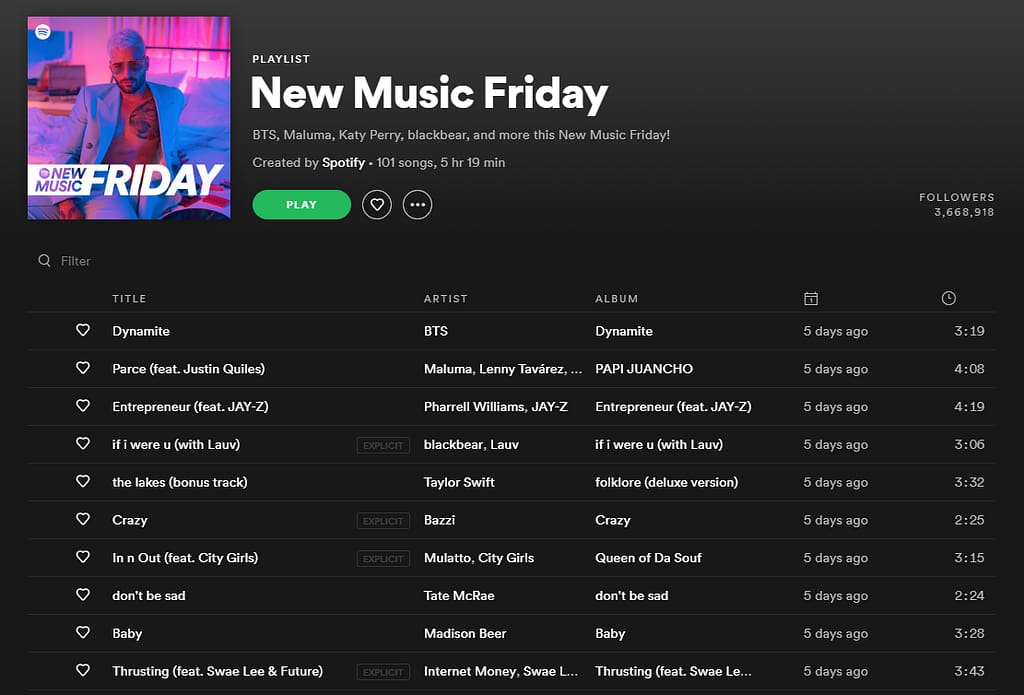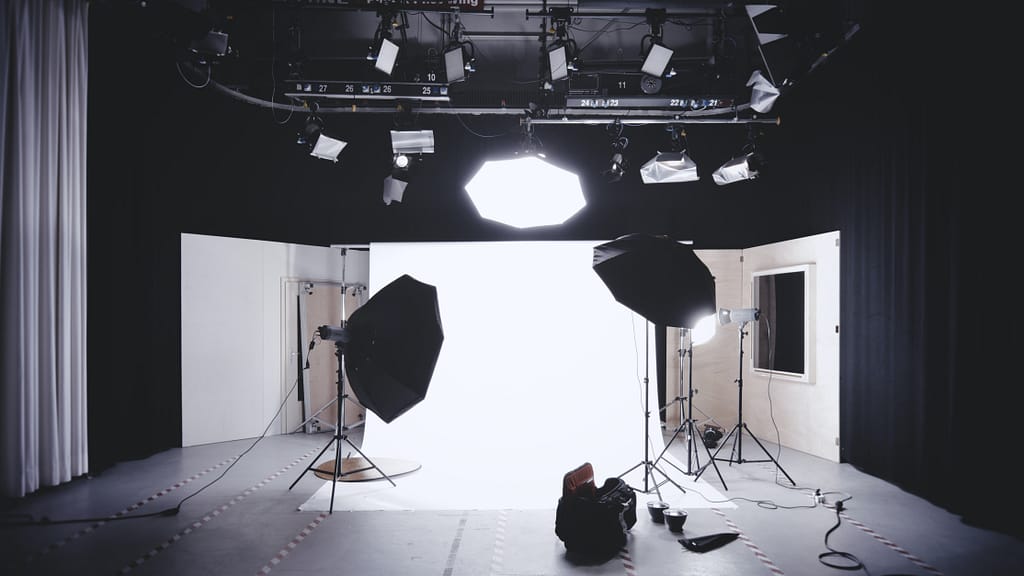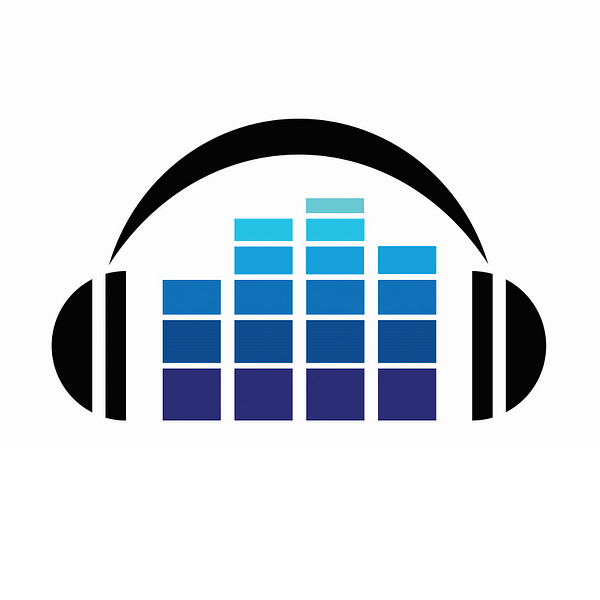Promoting your music
An introduction to music promotion for artists who aren't keen on marketing
Congratulations on completing your latest music recording! It is now time to let the world hear it and grow your fan base. Depending on your objectives, you might want to make money from it, too. Do you feel a lot more comfortable writing songs than promoting your music? This guide walks you through the essentials of digital marketing on a budget.
1. Production is king
Picture a random shopper in a store: when they pick a new product off the shelf, it is almost always because something in its packaging attracted them. The same applies to your music: during the first seconds when it is heard, its sonic qualities matter most than its substance. When your music is in the middle of a social media feed among plenty of other exciting things, your chance to grab the listener’s attention only lasts a split second.
Of course, the songwriting and the performance remain the most essential drivers for your success. But in order to get people to actually listen to one of your songs in its entirety, you need to flirt with your potential fans and seduce them. That is achieved with a great recording, mixing and mastering job. Having a compelling sound is also a key to getting your fans to play your songs on repeat. You’d better make sure you sound good in their headsets, laptops and car stereos alike because that is the number 1 essential rule for promoting your music!

2. Have great artwork

Artwork is the other part of your music “packaging” and another key to catching your fans’ attention. Unlike the vinyl days, album covers have now shrunk to a tiny picture. But this little square is often the very first contact your listener will have with your new music. It is what will make them want to click play or skip to the next. Event though it is a major component when promoting your music, it is vastly underestimated by independent artists.
Your artwork should reflect your artistic universe and correlate with the song or album in some way. You should think about your artwork early in the production process. Some indie artists overlook to create their artwork and realize that it is compulsory when uploading music to streaming platforms. They often end up grabbing the last photo on their roll or worse: a copyrighted picture from Google. Don’t be one of these guys.
3. A website in 2020? Seriously?
Sorry to break it to you but even though social media get the lion’s share of your online activity, a website is still pretty much a prerequisite. It gives a sense of professionalism to your career, and it is what showcases your personality the most accurately. Unlike social media pages, you have total control over your website design, structure and content. You should take advantage of this and showcase what matters to you in the best possible way. You are not limited to a tiny square picture or a single line in a playlist here, so think big!
Social media trends come and go. Our kids keep coming up with new social media apps with short, funny names and one of them might be the new Instagram tomorrow. Your website is here to stay and you get to decide what and when your visitors will see about you. Besides, you’re not expected to add new content to a website as often as on social media. You can see it as a good passive music promotion tool.

4. Be social!

Here we are… the single most important marketing tool to promote your music. Social media is very powerful, and time-consuming as well. Not only can you share your music, but also photos, videos, stories and messages that are all various ways to turn audience into loyal fans. You can – and you should do this continuously, not just when you release new content. The challenging part is to find the right balance between lots of posts and quality posts.
Don’t spam your walls just for the sake of having something new everyday. Make sure you appeal to most: diversify and do not just link to the same streaming media each time. People like their habits and a Spotify subscriber is unlikely to click an Apple Music link and vice versa. Show “behind-the-scene” content (recording sessions, live gigs, songwriting/brainstorming sessions, practice sessions…), fans love that. Video is by far the most efficient and appealing media but again, be sure to keep the quality to a minimum standard if you don’t want to drive people away.
Be yourself, don’t act like Imagine Dragons or Lady Gaga if you are just releasing your first, bedroom-recorded album. You want people to like you for who you are because that’s what will make them want to listen to your future release. However, be sure to keep your content positive and appealing. Steer clear of sensitive topics that might drive people away like politics, for instance. Social media is powerful both ways: it can help you get recognition but it can equally label you with a poor reputation.
5. Pile up on visuals
It is human nature to be hungry for visuals and prone to judge by the appearances at first. So whether you like it or not, you will have to put in some effort on your photos and videos. Poor pictures will make people think your music is cheap, no picture will get you nowhere. You can use your latest album artwork in the cover pictures on social media. Smartphone video captures can be suitable but you need to make sure to get them done by someone skilled enough to make them attractive.
You’ll need a lot of material to feed your social media stream so don’t think twice when you get a chance to take a picture. Have photos and videos of you playing your instrument, on stage, in the studio, just make sure you keep them engaging for your fans. Music videos is a topic that merits its own article but to sum it up, a music video is a huge advantage when it comes to standing out of the competition. Of course it is vastly dependent on the budget you have available so we won’t expand too much. Just give it some careful thought, it really is a major music promotion tool.

5. Strategic marketing

If you’re making music, you probably want to stay away from the boring company meetings and their strings of business vernacular such as “strategic marketing”… Well, as an artist or a band, you are a business too so you should give it some careful thought.
It is crucial to define who your target audience is and how to get them engaged. In order to do that, you need to make sure you know exactly who you are and what music you are making. Yes this might sound stupid but you would be surprised to know how people see you as an artist/band sometimes, or how they would categorize your music. It is often very different from what you had initially envisioned. Knowing your target audience allows you to check out what similar, successful bands and artists do to promote their music and replicate that.
Ask around to find out how people see you and be sure to come up with a clear definition of your identity, that will be both coherent with your aspirations and that your fans can relate to. Make sure that all members share the same views if you’re in a band.
6. Planning, reviewing, releasing
When you don’t have a professional marketing team to take care of this for you, the most simple and efficient way to get a song pushed towards lots of listeners is to get on one of Spotify’s playlists. There is no guarantee you will achieve this but you can maximize your odds by doing the following:
- Make sure you have claimed your Spotify for Artists profile, and updated it with the latest info (bio, pictures, live events dates…)
- Pick the right genre for the song you’re hoping to get playlisted. Listen to the playlists you’d like to be featured on and get a feel for the kind of music that has been curated there.
- Playlist curators want to get more followers for their playlists. If you can help them promote their playlist (on your social media for instance) they’re more likely to retain your song longer or place it in a better position.
You can pitch a song to Spotify for playlist consideration yourself, it is easy to do (read how by clicking here). One essential thing you need to anticipate is that your song can only be considered during the time gap between the upload and the release, so you need to allow at least 2 weeks before the release date. Not all distributors allow you to set a custom release date so choose wisely.

Lastly, be aware that in the music promotion business there are a lot of scams and seemingly easy success boosters. They usually boast catchy punchlines such as “get 30,000 followers for $9 a month” and whatnot. Fake followers or abnormal streams surge will get spotted by algorithms and will have a negative impact on your music. There is no easy, express path to success. You need to grow a fan base organically and that takes time, consistency and hard work. Good luck!
Something missing?
Do you have a question that remains unanswered? Would you like me to expand on something or address a different topic?


